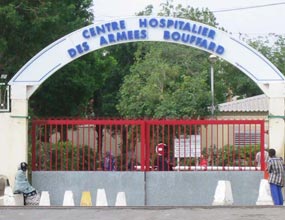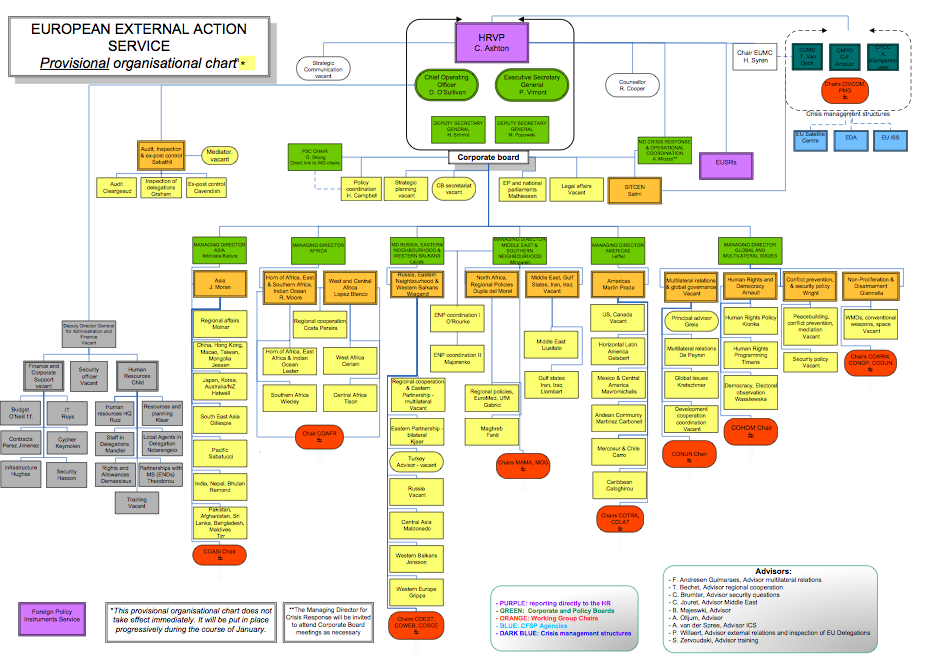When the McArthur of Blackwater entered the fight against piracy

This is part of the batch of revelations brought by Wikileaks and analyzed by the New York Times. The Djiboutian government authorized in 2009 the private American company Blackwater Worldwide (BW), received authorization to operate from the port of Djibouti, a ship armed against pirates, to protect commercial vessels.
It is no secret that the fight against piracy is a vast market for private military companies, in the process of reconversion after the rather glitzy era of Iraq. And that Blackwater is investing in it, hoping for an outlet. An investment that did not have the expected result. On the other hand, what seems interesting to me are the details given by the telegram, the American support for this initiative which remains very cautious (we are awaiting instructions from the State Department is it mentioned at the end of the telegram), and above all the motivation, which is based on a fairly pragmatic approach (there is a market, American companies must be present, should they be supported) as well as the sharing of information (Blackwater will communicate its SOP - operational procedure - to the embassies of Nairobi and Djibouti), sharing which is not illogical (and is commonly practiced).
A robust team of US boys, the French military hospital in assistance and a Franco-Djiboutian intermediary
Blackwater thus obtained the authorization for the "McArthur", a former 183-foot NOAA (National Oceanic and Atmospheric Administration) vessel flying the American flag, manned by a crew of 33 men (all American citizens) 15 sailors and 3 crews of 6 guards, armed. Blackwater does not intend to arrest the pirates but will use lethal force against the pirates. The ship is thus equipped with 50 caliber machine guns ". It has a platform for helicopters but will not be equipped with one; however, a UAV will be on board. A " video system will record hacker activity ».
Interesting detail: the company negotiated via an intermediary Inchcape, access for its men to the French military hospital Bouffard. And his local agent on site will be a Franco-Djiboutian, “ favorably known to the embassy ” is it specified, Bruno Pardigon, who owns several companies, including a new one devoted to maritime security “Djibouti Maritime Security Services” (DMSS).
A few questions: what to do with the pirates, especially if they are injured?
If private Americans do not want to carry out pirate custody, it is difficult not to ask the question of the arrest of suspects. " Even though the French handed over suspects to Puntland, Downey (the director of development for Africa, a former special forces officer) does not intend to do so, neither with Somalia nor with Kenya ". The diplomat - who we feel is very cautious about this commitment - specifies that Blackwater cannot benefit from the agreement signed with Kenya, which is a government-to-government agreement”.
This involvement remains full of unknowns. " There is no precedent for a paramilitary operation from a purely commercial environment ". And many questions arise. While international maritime law permits the use of force against pirates (2), Downey " also recognizes the need to respect international humanitarian law”. But in practice: what to do with injured pirates? " without compromising the client's ability to protect », we can clearly see how the problem is posed, and where the balance of priorities lies...
“BW has no intention of taking any pirates into custody. While the French have previously put pirates ashore in Puntland, Downey said BW had no plans to do so, either in Somalia or Kenya (noting that Kenya's bilateral PUC agreements with the USG and HMG were government-to-government). (...) While asserting that international maritime law allows the use of lethal force against pirates, BW also recognizes the need to respect international humanitarian obligations. Of concern, for example, is whether BW would be responsible for assisting injured pirates, if doing so endangered BW's ability to protect its client(s). »Dilemma: supporting a US or not company
At the time of writing the telegram: " Blackwater has no customers today (February 2009) but it intends to develop a market with the launch in March (2009) with the presence of officials. Escort cost: less than $200.000.” The diplomat explains his dilemma. He therefore asks for "Guidelines" on "Appropriate Engagement with Blackwater", also respecting the government's role in trade defense and support for American businesses”.
“Post would appreciate Department's guidance on the appropriate level of engagement with Blackwater, while also fulfilling the USG's commercial advocacy responsibilities to support US firms. »Epilogue: can we specify that after a fanfare start, XE (the new name of Blackwater) has decided to sell its flagship ship, the McArthur, as we learn from an American newspaper (1).
(1) The Virginian Pilot talks about a reduced price of $3,7 million
(2) In my opinion, the exclusive use of force on the high seas is however reserved for the public or authorized force (except in the case of self-defence). And the "Blackwater" company cannot reintroduce itself in either of the two, except to reintroduce the "letters of marque" which empowered merry men to go chase (loot and sink if necessary) "enemy" ships.
look at the full telegram


